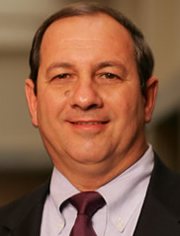
A prominent University of Notre Dame political scientist will explore how much scandal there is, and is not, in the “United Nations Oil-for-Food Scandal” during a program Wednesday (Dec. 8) in Washington, D.C.
George A. Lopez, senior fellow in Notre Dames Joan B. Kroc Institute for International Peace Studies, will be one of three panelists featured at a discussion sponsored by the American Enterprise Institute (AEI). The other panelists will be Wall Street Journal columnist Claudia Rosett and AEI vice president Danielle Pletka.
Lopez studies the use of economic sanctions to force reduction of weapons of mass destruction. He has special expertise on Iraq.
Because U.N. sanctions against Iraq were causing hardship in the 1990s, Saddam Hussein was allowed to sell oil to purchase food for his people. Congressional investigators allege that Saddams government illegally siphoned $21.3 billion from the program. Saddam reportedly used the funds to purchase weapons, pay off foreign businessmen and politicians, and reward terrorist sympathizers. Many officials from the United Nations and from foreign governments and businesses have been implicated in the fraud.
During Wednesdays panel discussion of the oil-for-food scandal, panelists will be asked: Who, ultimately, will be deemed responsible for the scandal? What can we learn from it? How will it affect the future of the United Nations and its relationship with the United States?
The discussion will begin at 4 p.m. at AEI headquarters, 1150 17th Street, N.W., Washington, D.C. Shortly after the discussion ends, a video Webcast of the event will be available at www.aei.org/eventvideos .
More information about Lopez and his Sanctions and Security Project is available at http://kroc.nd.edu .
- _p. Contact:
_ * Julie Titone, director of communications, Kroc Institute, " jtitone@nd.edu ":mailto:jtitone@nd.edu , 574-631-8819.
TopicID: 8402